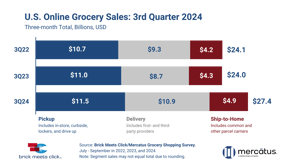Sponsored By
Three beef ribs in a white styrofoam container.
Meat
USDA report: The meat industry caters to a select fewUSDA report: The meat industry caters to a select few
Retailers, distributors, and packers appear to be engaging in unfair business practices, and the USDA is ready to take action
Stay up-to-date on the latest food retail news and trends
Subscribe to free eNewsletters from Supermarket News










































